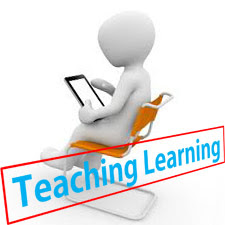Major Variables of Child's Reading
The
Common question of parents and teachers is.
And this question is raised with high level of frustration as if they have
attempted for it dozens of time. But it's not the reality. This problem is as
like I wanted to earn millions of rupees and I did both intellectual and decent
effort for it but it didn't happen in my life. I am not going to blame anybody
it is happening what I think in my life also and in the life of average man.
I was pondering about why people are not getting better health? They are not
able to earn good amount of money for their lives. Their children are not
getting success in schools and colleges properly. These types of issues are
more untouched and beyond the interest of many common people. Furthermore, some
of them often whisper nonsense! I have many more things to do rather than
reading such content. No you don't have more important subject to deal until
you have consciously pretended as if you are a sophisticated philosopher.
I humbly request for putting your time and effort to understand then apply for
the better solution.
Now let's move to the above statement
My child doesn't like reading.
Age and year level
First of all, how old is your child is a basic and fundamental aspect along
with which grade does s/he read? The importance of age and year level of your
child is highlighted by the researchers (Merga, 2014b; Parsons et all., 2018;
Scholastic, 2015, 2016a, 2016b.) while dealing reading behavior of your child.
[Don't make rush. We will deal the issue in detail in upcoming series]
Gender
Girls are more engaged and outperforming than boys; since in most of the cases,
reading is somehow related with frequency and attitudes of the child. Have you
ever thought this way? If not let's think this way in some of the coming series
but they will not be regular and formal whatever we will turn the pages of this
issue also.
The encouragement form teacher and parents to the child for reading also plays
vital role. Most of the cases we like but we don't do it. It is important and
the child is longing for the support and encouragement we want to do it but we
actually don't do it. Even if we do we can't do it as it is supposed to do.
Whatever we need to try.
Early literacy experience
Earlier the child starts to learn reading and writing better her performance in
future as it is said morning shows the day. BUT one should not expose the child
in reading and writing before the age of 6 what I personally think.
Genre performance
Talking about children literature reading becomes more natural and adaptive
when children read lyrics, poems and songs, in a similar pattern fiction is the
centre of desire comparison to non-fiction. If so (with reference to Merga
& Mat Roni, 2018, Jerrim & Moss 2019)
Perception of the importance of reading
The young people's perception about the importance of reading plays vital role
in their engagement in reading. They are sometimes guided by expectancies for
success and ability beliefs, children subjective task values can shape their
choice, persistence and performance of activities (reading) as well as
influence it.
Shared reading opportunity
Children younger or older should get the platform (not formal but…) to share
their readings which plays the role of extrinsic variable directly linked to
fostering positive attitudes towards reading (Ivey & Broaddus, 2001; Merga,
2015a; Mol & Bus 2011). I hope your child is getting opportunity and
platform where she can really share what she and other have read. They can
share their feelings and parallel stories and poems.
Library visitation
More the children visit the library more they read or enjoy reading. Context
plays vital role. There is nothing to persuade. If you take your kids to the
cinema obviously they will watch the movie. Then what about visiting library.
Let me take a reference of Francis, Lance & Lietzau, (2010, p. iii)
Elementary schools with libraries visited by students this often are more
averaged better CSAP reading performance than those visited less often.
Last but not the least, Family modelling can exert a positive influence on
young people's reading engagement. According to the findings of recent studies
strongly suggest parent's reading engagement may be the most robust predictor
of reading engagement among selected parent involvement indices ( HO & Lau,
2018), and there is significant and sustained relationship between patents'
reading-related knowledge and their children's reading outcomes' (Segal &
Martiin-Chang, 2018, p. 14).
Conclusion
Concluding my opinion along with the various references what I suggest is
engaging and learning about your child's reading behavior is important and
useful.
Thank You!
References
Merga, M. K., & Mat Roni, S. (2018b). Children’s perceptions of the importance and value of reading. Australian Journal of Education, 62, 135–153.
Scholastic. (2016b). Kids and family reading report United Kingdom. Retrieved from http://www.scholastic.co.uk/readingreport
Segal, A., & Martin-Chang, S. (2018). The apple doesn’t fall from the tree: Parents’ reading-related knowledge and children’s reading outcomes. Reading and Writing, 31, 1231–1247.
Francis, B. H., Lance, K. C., & Lietzau, Z. (2010). School librarians continue to help students achieve
standards: The third Colorado study (2010). Closer Look Report. Denver, CO: Colorado State Library, Library Research Service
Related Articles









0 Comments